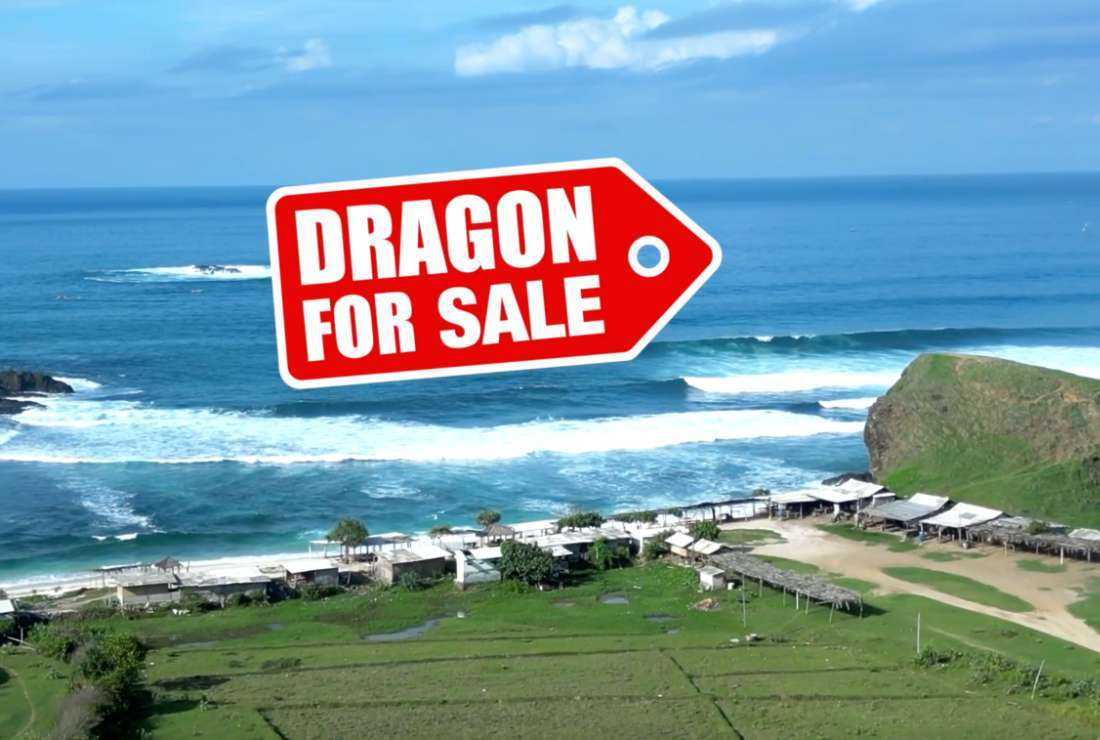
Catholic majority island is promoted as a premium destination by Indonesia

A screengrab of the documentary film, Dragon for Sale. (Photo supplied)
A new documentary film exposes the dark side of tourism development on Indonesia's Catholic-majority Flores Island, which is being developed as a premium destination.
Dragon for Sale, which was released this month, has been widely distributed via Rangkai.id, a national film platform, and will be screened at eight leading universities in the US on May 1.
The documentary is produced by the Tim Ekspedisi Indonesia Baru (New Indonesia Expedition Team), a group of activists and journalists who have traveled around the country on motorcycles since last year.
It focuses on tourism development in Labuan Bajo in West Manggarai regency on Flores Island, which was promoted by the government as one of the ‘10 New Bali’ under a program initiated in 2016.
Labuan Bajo is the gateway to the famous Komodo National Park, a UNESCO-approved World Heritage Site, well-known as the natural habitat of giant lizards known as Komodo dragons. The place will host the ASEAN summit next month.
The documentary in five parts, each around 50 minutes duration, highlights issues that so far have not been visible to tourists and exposes the marginalization of local people, denial of indigenous peoples' rights, privatization of coastal areas and water resources, destruction of forests, control by big business players with strong political connections, and the resistance by residents to defend their living space.
In a statement, Dandhy Laksono, director of the documentary, alleged that tourism developments in Labuan Bajo as a premium destination offered little benefit to the locals.
Kinan, a Muslim tourist guide identified by only one name organized a discussion on the documentary in Komodo. He said developments in Labuan Bajo were being designed for outsiders while the interests of local residents were “destroyed.”
“Several corporations have obtained permits to open hotels and resorts over hundreds of hectares. One day big companies will control Komodo Island,” Kinan observed
He predicted that ten years from now, the Ata Modo indigenous people that inhabit Komodo Island will be reduced to living in cramped spaces.
Ignasius Jaques Juru, who organized the film’s discussion in Yogyakarta, a city on the island of Java and known for its traditional arts and cultural heritage, said the film threw light on the negative impacts of big claims to develop Labuan Bajo as a "New Bali" ushering in prosperity.
Nearly 400 hectares of Bowosie Forest, a buffer area, was cleared for the construction of hotels and resorts, Juru alleged.
Juru also questioned the tourism industry’s contributions to the welfare of local people, given the high poverty in Labuan Bajo and West Manggarai regency.
The regency houses 256,000 people and 17.15 percent of them are poor; nearly double the national poverty rate of 9.57 percent, according to the state-owned Central Bureau of Statistics.
Christopher Hulshof, director of the community engagement for the Graduate Education and Training in Southeast Asian Studies who is organizing the screenings in the US, said it was important for international audiences as they would come to know “the darker side of Indonesia’s premium tourism development programs.”
“Few people know about the ‘10 New Balis’ initiative and the catastrophic effect it has on local communities, the environment, and wildlife,” he told UCA News.
“They put up a façade of benevolence under the mask of ‘green development’ which obscures the actual environmental damage and community disruption,” he said.
In the US, the film will be screened at the University of Wisconsin-Madison, Cornell University, University of Michigan, University of Washington-Seattle, University of Hawaii-Manoa, University of Arizona, Yale University, and Northern Illinois University.
Oktovianus Susabun, one of the directors of the documentary, said the film has been screened and discussed in 28 places throughout Indonesia and four other places are getting ready to screen it.
On April 30, the film will be screened at the Ledalero Institute of Philosophy and Creative Technology, an institute for seminarians in Maumere diocese on the eastern part of Island Flores where 70 percent of the population is Catholic, he said.
Help us keep UCA News independent
The Church in Asia needs objective and independent journalism to speak the truth about the Church and the state.
With a network of professionally qualified journalists and editors across Asia, UCA News is just about meeting that need. But professionalism does not come cheap. We depend on you, our readers, to help maintain our independence and seek that truth.
A small donation of US$2 a month would make a big difference in our quest to achieve our goal.

Share your comments